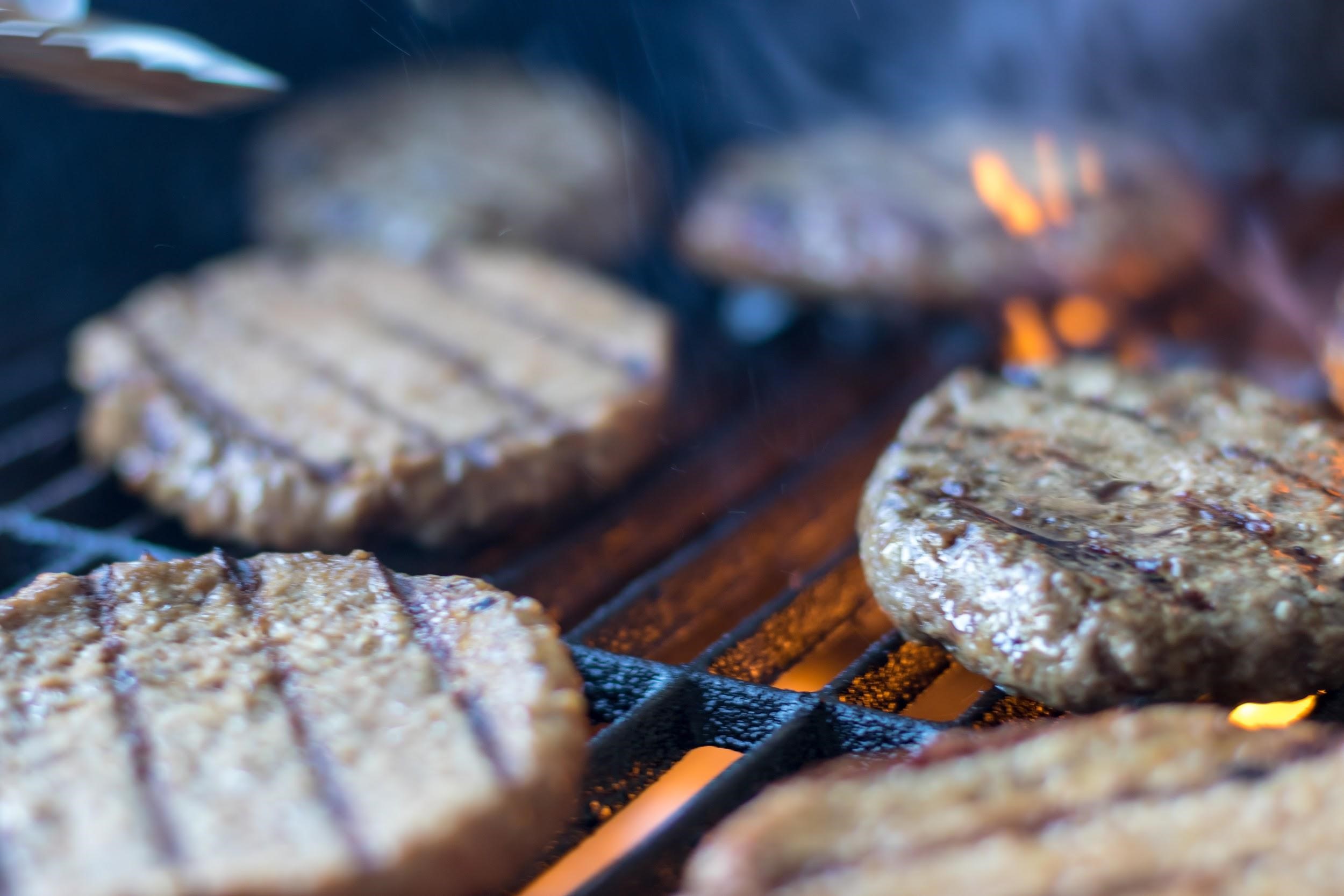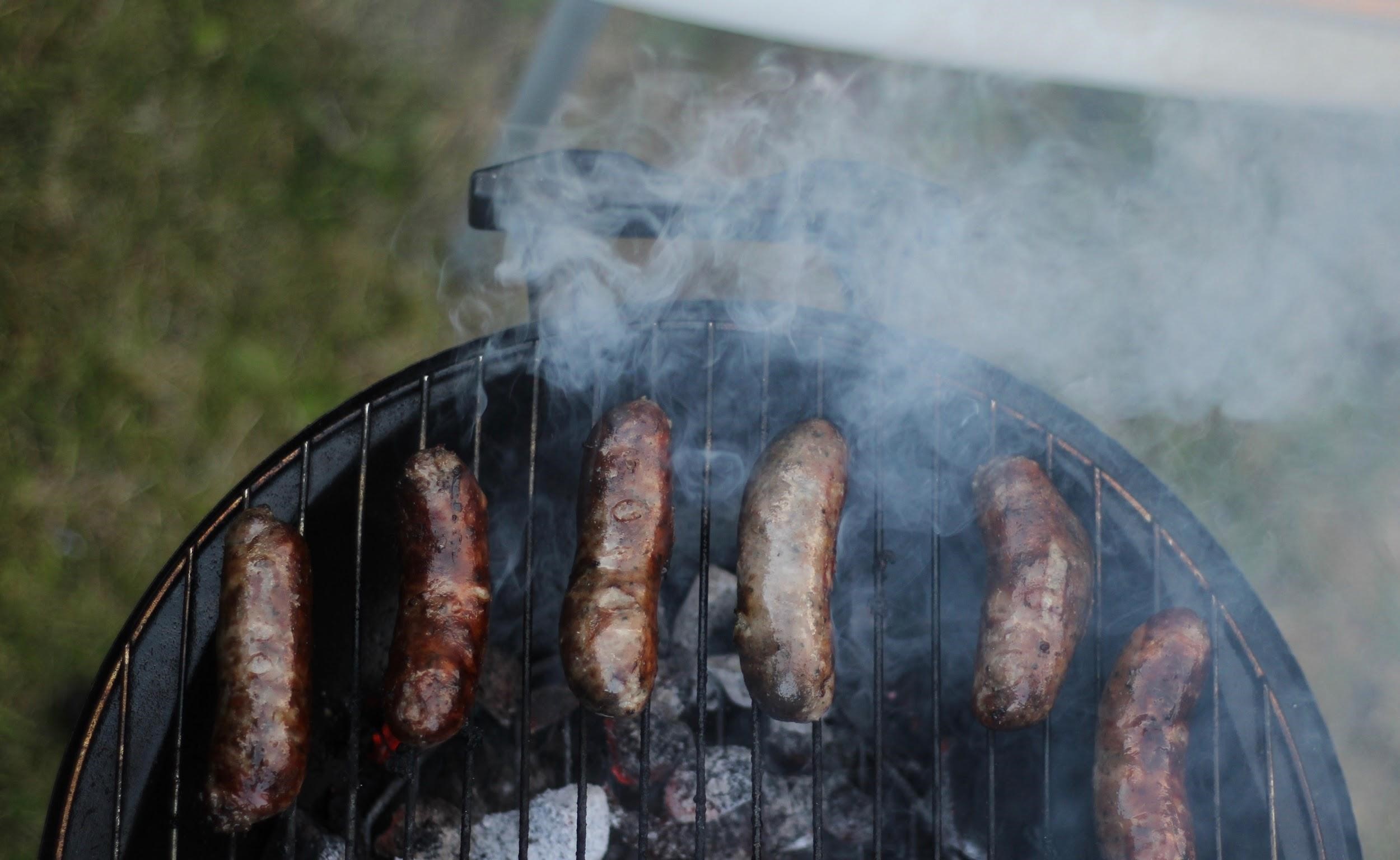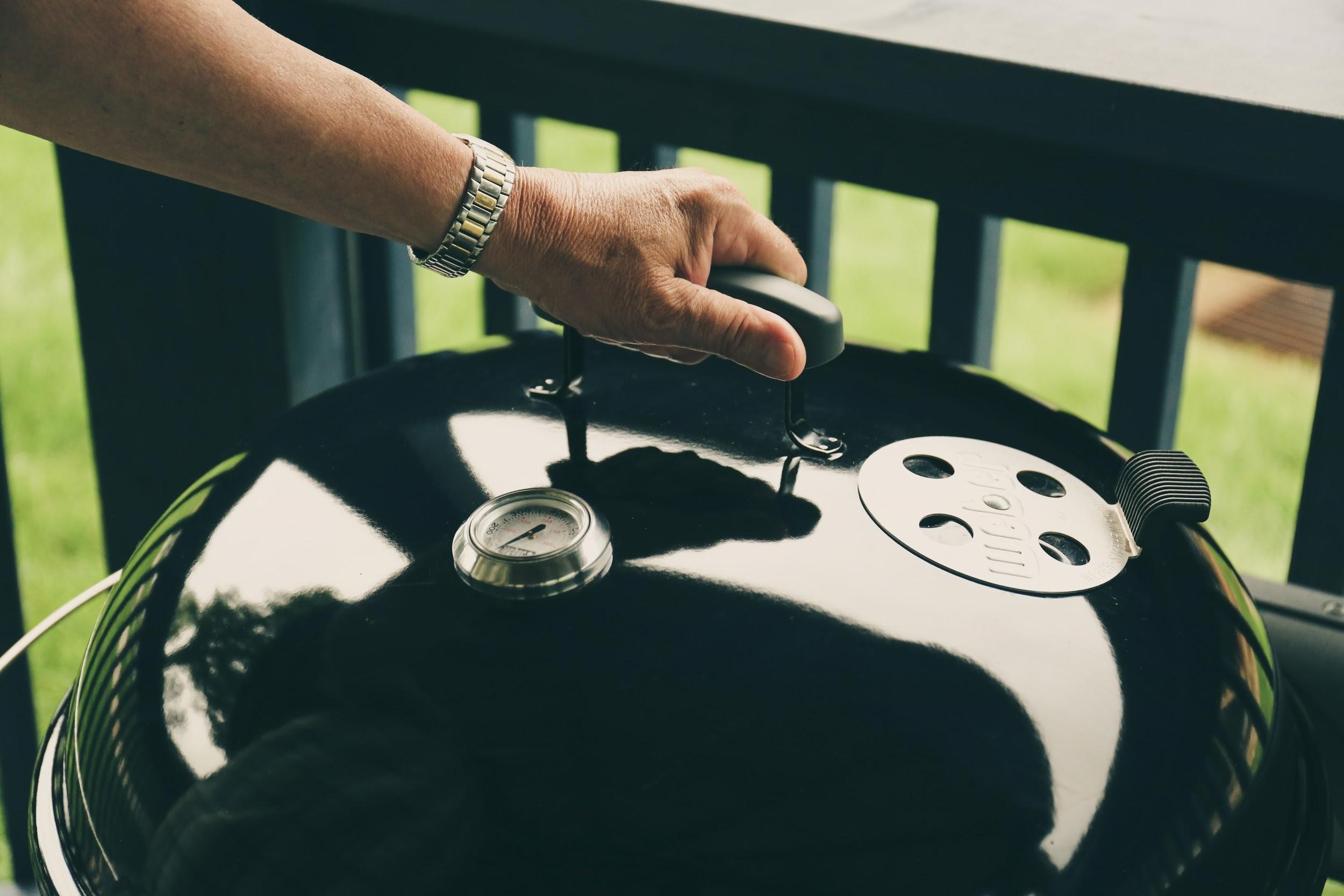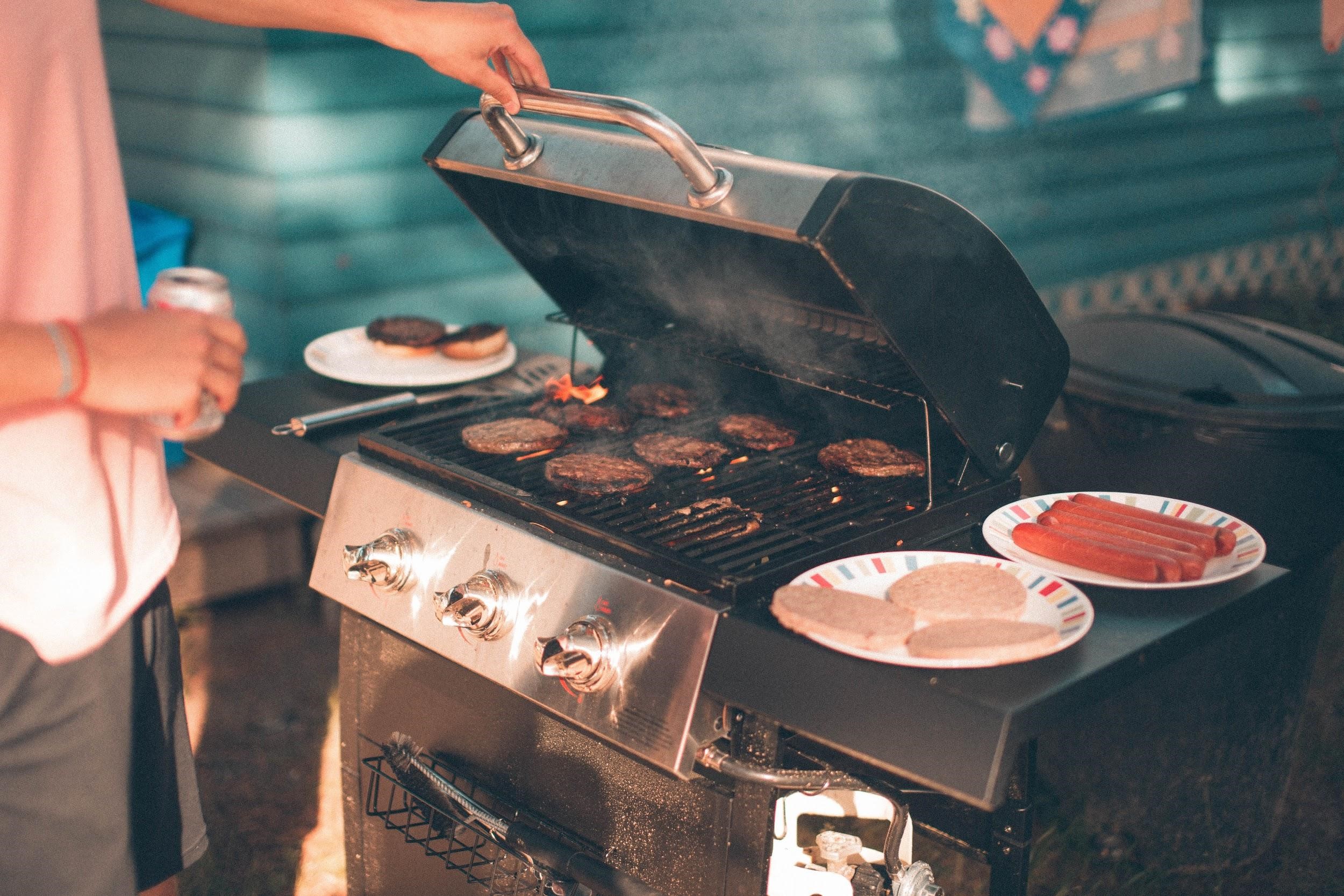How to Decide Whether You Should You Repair or Replace Your BBQ Grill
Grilling season is here, and nothing beats the joy of gathering with friends for a summer cookout. But what happens when your trusted gas grill starts showing signs of wear and tear? Should you repair it, or is it time to invest in a new one? While repairing your grill may seem simple enough, sometimes the costs are comparable to buying a new one.
The BBQ Depot is your go-to expert for all things grilling. In this guide, we'll explore the key factors to help you decide whether repairing your grill is worth it or if buying a new one is the smarter choice. Plus, we’re including additional tips to help you out — no matter which route you take.
Before we dive in, it's important to know how long your grill is supposed to last to help you determine if a few repairs will be enough to breathe life back into your grill.
How long does a grill last?

You might be thinking, how long do gas grills typically last?
On average, Americans will throw their grill out after only three years. However, we assure you that they should last much longer than that! In reality, most gas grills last between 5 to 15 years before needing to be replaced. Grills don’t last forever, but their lifespan can be extended with the proper care.
Here are the most important factors that affect the longevity of your grill:
1. Material Quality: Grills made from stainless steel or cast iron typically last longer than those made from cheaper metals. High-quality construction materials are resistant to rust and wear.
2. Climate and Storage Conditions: Exposure to moisture, saltwater, and extreme weather can significantly shorten your grill's lifespan. Proper storage and protecting your grill from the elements can help.
3. Frequency of Use: Grills that are used frequently will naturally wear down faster. However, regular cleaning and maintenance can help reduce the effects of frequent grilling.
4. Proper Maintenance: Regular cleaning is essential for grill longevity. Keep burners, cooking grates, and the interior of the grill free from grease and food residue. Replace any worn-out components, such as the igniter or burners, to ensure your grill stays in top condition.
*We'll discuss more grill maintenance tips to improve your gas grills lifespan later in this guide.
Gas Grill Troubleshooting

Often, the first sign that something is wrong is if your grill isn’t cooking your food as it has in the past. If you are used to quick, roaring heat, and your grill is down to but an itty-bitty flame, it may be time to determine the cause. In some cases, it may be a quick fix or require a replacement part. But in others, you may be beyond warranty and might as well buy a new grill.
Here are some common some troubleshooting issues indicating that your BBQ grill may need to be repaired or replaced:
- Grill won’t light
- Grill flame is low
- Gas leaks
- Gas grill not getting hot
- Large flame coming from the sides of the burner
- Yellow or orange flame
- Broken regulator (controls flow of gas)
- Lots of smoke
- Hoses/fuel lines cracked
- Excessive flare ups
- Grill ignitor not working
- Uneven heating
- Damaged or dirty venturi tubes
- Low temperature
- Severe grease and debris buildup
- Severe exterior damage
- Other gas burner issues
If you are unable to resolve the problem with basic troubleshooting, your next step is to assess the damage. This will help you determine if your repair requires restoration or replacement for your grill to operate efficiently.
The good news is, practically any part of your gas grill can be replaced or restored at an affordable cost. Looking for a replacement part for your grill? At The BBQ Depot, we offer thousands of high-quality, low-cost grill replacement parts for a variety of brands. We make it easy for you to find the exact part you're looking for, all you need is the brand, part or model number.
Repair vs. Replace Your Gas Grill
What happens when there are multiple signs indicating that your BBQ grill is either damaged or broken beyond repair? Here at The BBQ Depot, we are strong proponents of proper grill maintenance and BBQ repair. But, unfortunately, sometimes wear and tear will get the best of your grill and it will no longer be in working condition. You're then faced with the choice of either repairing the grill with replacement parts or buying a new one.
Key Considerations
To decide whether to repair or replace your gas grill, consider these factors when assessing its condition:
- Age of the Grill: Typically, grills last between 5 to 15 years. If your grill is nearing or surpassing this age range, replacement might be more cost-effective than repair.
- Frequency of Use: A grill that sees frequent use will naturally degrade faster. Regular maintenance can extend its life, but heavy use might require more frequent replacements.
- Grill Performance: Problems like low flame or insufficient heat are often fixed by replacing parts, such as the burners or grill grates.
- Cost of Repairs vs. Replacement: Evaluate the cost of necessary repairs versus replacing your grill entirely.
When is Repairing Your Grill Worth It?

Grills are built to withstand the elements, but even the toughest ones can face issues over time. While some grill problems are simple to fix, others may require professional attention. Here’s a breakdown of when repairing your grill might be the best option:
1. Minor Repairs and Affordable Parts
Some issues with your grill are small, affordable, and easy to fix. These might include:
- Clogged Burner Ports: If your grill burners aren’t lighting properly or producing an uneven flame, they may just need a good cleaning. A quick burner clean-up can get your grill working again without the need for a replacement.
- Ignition System Malfunctions: A faulty igniter or electrode is a common issue. In most cases, replacing the ignition system is a quick, low-cost fix.
- Leaky Propane or Gas Hoses: A leaky hose can cause gas to escape, which is dangerous. Replacing a propane or gas hose is relatively simple and inexpensive.
2. High-Quality Grill Brands with Replaceable Parts
If you own a high-end grill, repairing it with replacement parts may be more cost-effective than replacing it for a new one. Premium brands often have long-lasting parts and easy-to-replace components. Brands like Lynx, Twin Eagles, and Alfresco are known for their durability and offer a wide range of replacement parts, making them some of our best-selling parts.
3. Warranty Coverage
If your grill is still under warranty, repairs may be covered by the manufacturer. Be sure to check the warranty conditions, since many replacement parts are not covered by the warranty.
When is Replacing Your Grill the Smarter Choice?

While repairs are often viable, there are certain situations where replacing your grill is the better long-term solution. Here are the key signs that it might be time for an upgrade:
1. Extensive Rust or Structural Damage
Rust is a common issue, especially for grills that are left outdoors for extended periods. If the frame, burners, or cooking grates are severely rusted, repair might not be able to restore the grill to its optimal performance. It could be more cost-effective to replace it.
2. Major Component Failures
If critical parts like the burners, heat plates, or gas valve are malfunctioning beyond repair, you may be better off replacing the entire grill. Major failures often lead to higher repair costs than just buying a new model.
3. Outdated Technology or Features
Newer grills come with advanced features like smart technology, infrared burners, and improved fuel efficiency. If your old grill lacks modern technology or features and you want to improve your grilling experience, upgrading to a new grill might be a better investment.
Cost Comparison: Repairing vs. Replacing Your Grill
Understanding the costs of repairing vs. replacing your grill is key to making an informed decision. Here are some typical grill repair costs:
- Burner replacement: $100+, depending on the brand and material.
- Cooking grates: $30-$100
- Igniter replacement: $15-$50 for most models.
- Ceramic briquettes: $30-$100
If your grill’s repair costs are 50% or more of the price of a new grill, replacing your grill is often the more economical choice. For example, replacing your grill burners and igniter on a 10-year-old grill might cost close to $300, while a new grill could be purchased for around $400.
When your grill is still under warranty or has many years of life left, repairing it can be more cost-effective. If your grill is old and worn out, however, a new grill might offer better value and modern features.
Selecting A New Grill

If it's time to give your outdoor kitchen an upgrade, the selection process of buying a new grill can be overwhelming. With so many options, sizes and fuel types on the market you could be searching for hours and still feel lost. Here are some tips to streamline your decision-making when buying a new grill:
Assess Your Needs
Consider your specific grilling requirements. Do you need a compact model for small gatherings, or a larger unit for frequent entertaining? Do you want a freestanding grill or built-in grill? Are you limited on space? What fuel type are you looking for?
Also, knowing your style and the types of food you want to cook can help you choose which special features are right for you. Do you want a warming rack to keep food warm? Will you be grilling at night and need interior lighting? Different models cater to a variety of needs, and understanding your own requirements and personal preferences is crucial.
Compare Features and Warranties
Evaluate the unique features of potential grills. Some high-end models might offer an infrared burners for uniform heat distribution, others focus on portability or ease of cleaning. Also, make sure you check the warranty offered to help offer you peace of mind and protection against potential defects.
Research Manufacturing Origins
Not all grill brands are created equal. Choose a brand known for manufacturing high-quality grills, so you're rest assured you're getting a grill built to last and perform. You should also look at their online reviews regarding customer service, pricing, and repairs.
At The BBQ Depot, we are proud to stock over 200 highly regarded grill brands. Browse all grill brands here to choose the right one for you.
What Is Your Budget?
Obviously, your budget should play a role in what grill you decide to buy. While buying a new grill may save you money in the long run, that doesn't mean you have to put yourself in a tough financial spot. We recommend going for a grill that has most, if not all, of the features you want at a price you can afford.
Maximizing the Lifespan of Your Grill
Once you've made the proper repairs or settled on a grill, maintaining your grill is crucial for extending its lifespan.
Grill Maintenance Practices
The reason why most grills last longer than others depends on the level of care the owner takes in maintaining their grill. To prevent wear and tear and make your gas grill last a lot longer, regular maintenance is crucial. Here are some maintenance tips to help:
- Cleaning: Regularly cleaning the grill grates, burners and other components to prevent build up and ensure consistent performance. We recommend cleaning it before and after each cooking session.
- Proper storage: Use a grill cover to protect your grill or store it in a sheltered area to protect it from the elements.
- Inspection: Regular inspection of your grill and its parts for wear or damage and replacing broken parts as needed. It’s best to make small repairs rather than waiting for them to build up.
Investing in Quality Accessories
High-quality grill covers, cleaning tools, and replacement parts can significantly enhance the durability and performance of your grill.
Conclusion
Deciding whether to repair or replace your gas grill is not a decision to be taken lightly. By considering the condition and performance of your grill, you can make an informed choice that best suits your grilling needs. Whether you opt to repair or replace your grill, regular maintenance and investing in quality components will ensure that your grill remains a reliable companion in during grilling season.
If you’re in need of replacement parts or a new grill, head to The BBQ Depot . We offer a wide range of replacement parts and high-end grills to fit your grilling needs. If you're looking to purchase grill parts or have any questions about buying a grill, don't hesitate to contact us. Happy grilling!
FAQs
Q: How do I know when to repair or replace my gas grill?
If your grill is still functioning well but has minor issues like clogged burners, a repair is likely the best option. If it has major rust or critical component failure, replacing it might be smarter.
Q: How often should I replace my grill?
A: Depending on the brand, condition and maintenance, most grills last between 5-15 years. If you notice most of your grill parts are worn and the grill itself is in rough shape, it might be time to replace it.
Q: Can I repair my grill myself?
A: Many common grill repairs, like replacing igniters or cleaning burners, can be done by homeowners with basic tools. We offer a variety resources on our Youtube channel and learning center, where you can find step-by-step instructions to help you repair grill parts yourself.
The article “Barbecue Repair vs Buying a New Grill” was originally published May 2017 but has since been updated to reflect new information.


